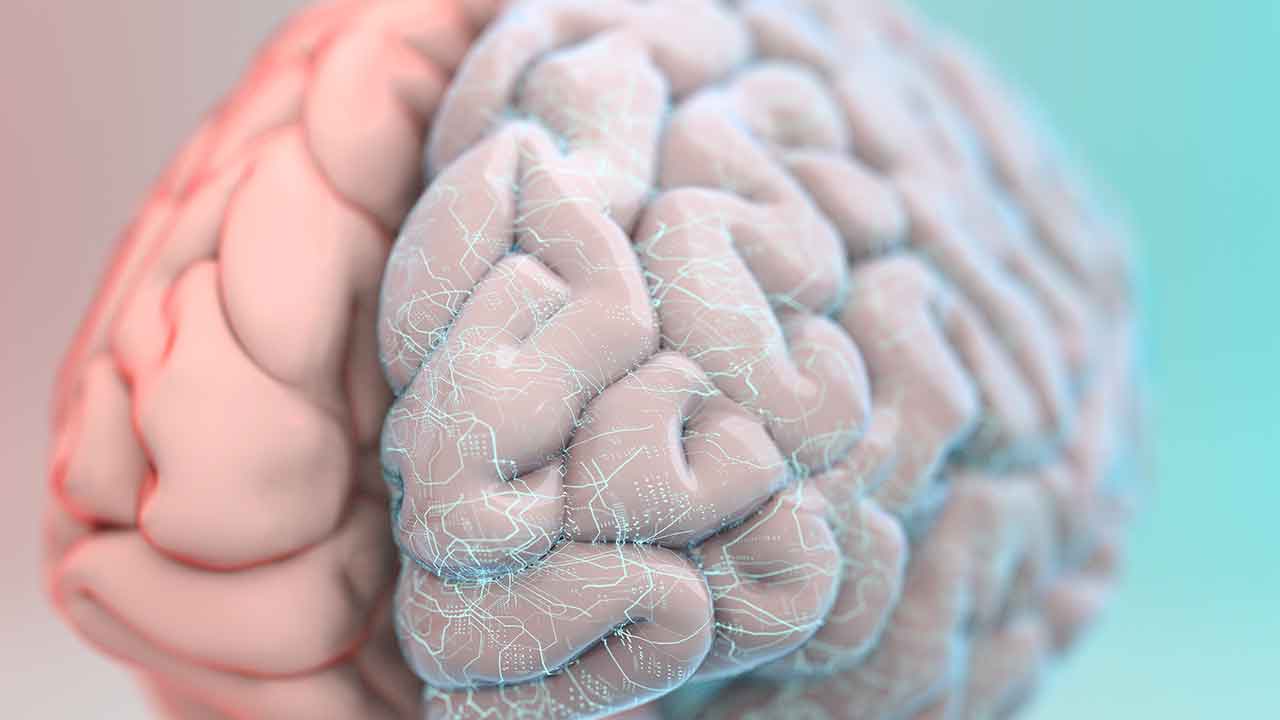Severe COVID-19 linked to signs of ageing in the brain

COVID-19 infection has been associated with the same molecular changes seen in ageing brains, including higher levels of activity from genes associated with the ageing process.
As we age, our brains shrink - with a five percent decline in weight per decade after the age of 40 - while our memory and levels of neurotransmitters like serotonin and dopamine decline.
With previous research finding that people who are infected with Covid can experience neurological conditions after they recover, as well as declines in cognitive performance that mimic accelerated ageing, a team of researchers from Harvard Medical School examined the brain tissue of 54 deceased people, including 21 who had severe Covid infections.
They found that changes in how genes were expressed in the brains of Covid-infected people were similar to what is seen in older brains.
Using a particular kind of analysis called whole-transcriptome sequencing, the team were able to investigate which genes were being switched on and off in a person at the time of their death, comparing brain samples from people infected with Covid and those who hadn’t been infected (from before the pandemic).
In comparison to the uninfected group, the Covid group showed higher levels of activity for genes associated with immunity. Meanwhile, genes linked to cognition, memory and the activity of synapses, which are essential for helping impulses travel through the nervous system, had lower levels of expression.
"We also observed significant associations of cellular response to DNA damage, mitochondrial function, regulation of response to stress and oxidative stress, vesicular transport, calcium homeostasis, and insulin signalling/secretion pathways previously associated with ageing processes and brain ageing," they wrote.
"Altogether, our analyses suggest that many biological pathways that change with natural ageing in the brain also change in severe COVID-19."
Also investigating the trigger of these changes, they found increased levels of activity in several inflammatory pathways associated with ageing in the brain, and that specific immune cells influence the expression of several of these genes.
This supports the hypothesis that the neurological symptoms that can accompany Covid are caused by inflammation triggered by the virus.
But they also explored the other hypothesis, that the neurological symptoms are caused by the virus infiltrating and infecting the brain - specifically the frontal cortex - by looking to see whether there was evidence of Covid RNA (which contains the virus’ genetic material it needs to replicate).
“In agreement with previous studies, SARS-CoV-2 viral RNA was not detected in samples from individuals with COVID-19, suggesting that the observed gene expression changes are unlikely due to the effects of the viral RNA in the frontal cortex,” they wrote.
With these findings, the researchers concluded that managing Covid-induced inflammation could protect against the development of the neurological symptoms associated with Covid.
They also argue that following up with patients recovering from Covid could be beneficial in reducing the risk or delaying the neurological symptoms and cognitive decline.
Speaking to Nature, neuropathologist Marianna Bugiani, who wasn’t involved in the study, said that it’s still difficult to know whether these changes to gene expression are permanent or whether they are also seen in people experiencing mild bouts of Covid.
“It opens a plethora of questions that are important, not only for understanding the disease, but to prepare society for what the consequences of the pandemic might be,” she said.
“And these consequences might not be clear for years.”
The researchers published their findings in the journal Nature Aging.
Image: Getty Images
